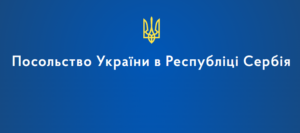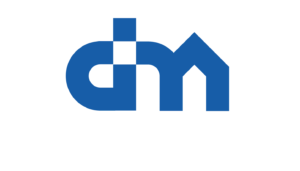
The Ukrainian children’s art festival “Veselka” was held in Novi Sad, Serbia, organized with the participation of the Ukrainian Embassy and the Ukrainian diaspora. The event became a platform for cultural unity and support for Ukrainian families living in Serbia.
The Veselka festival brought together children and families of Ukrainian origin from different cities in Serbia, offering them master classes, concerts, and interactive zones. The aim of the event was to preserve ties with Ukrainian roots, support the emotional well-being of migrant children, and strengthen the cultural infrastructure of the diaspora.
Exact data on the number of Ukrainian citizens and residents in Serbia varies. According to the Serbian Ministry of Internal Affairs, approximately 22,000 Ukrainian citizens have been registered in the country since the start of the war.
However, statistics on the number of Ukrainians living permanently or under temporary protection are not published regularly.

As of 15:43 GMT, the spot price of the precious metal was $4,222.18 per ounce, down 3.1% from the previous session’s close. Earlier in trading, it fell to $4,215.17 per ounce. Gold futures on Comex are down 3.5% to $4,205.8 per ounce.
Investors are taking profits amid a strengthening US dollar and signs of easing tensions.
In particular, US President Donald Trump said he expects to reach a trade agreement with Chinese President Xi Jinping. Ahead of the talks between the two leaders, US Treasury Secretary Scott Bessent and Chinese Vice Premier He Lifeng will meet.
In addition, White House economic adviser Kevin Hassett said yesterday that the US federal government shutdown is likely to end this week.
Earlier, the Experts Club think tank presented an analysis of the world’s leading gold-producing countries in a video on its YouTube channel — https://youtube.com/shorts/DWbzJ1e2tJc?si=YuRnDiu7jtfUPBR9

Our family has suffered a terrible tragedy. Our son, Arseniy Nasikovsky, died tragically at the age of just 21.
This is a pain that cannot be expressed in words. I ask everyone to be understanding of our loss and give us time to be alone with our family. Right now, I need to be with my wife and children to go through this pain together with them. I have a special request for the media: we respect your work, but we ask you to refrain from publishing articles, photos, and comments about our loss.
DIM Group is a Ukrainian full-cycle holding company in the field of real estate development, founded in 2014. The holding company unites several legal entities: manufacturing, architectural, and construction companies, a real estate agency, and a management company.
The founder and key figure of the group is Oleksandr Nasiakovskyi, who is the managing partner. DIM’s project portfolio covers residential real estate in Kyiv and the Kyiv region — over 800,000 m², with a significant part of the properties already commissioned or under construction.
Oleksandr Nasikowsky

The Romanian government plans to introduce a program called “golden investor visa” (Residency by Investment). According to the article, it will be possible to obtain a residence permit by investing €400,000 or more in the country’s economy. Applicants will have to confirm the legality of the origin of the funds, not be on any sanctions lists, and not pose a threat to national security, the publication reports.
Thus, with the introduction of this program, Romania will join the number of European countries that offer foreign investors a simplified procedure for obtaining a residence permit through investment.
What is a “golden visa” (Residency by Investment)?
This is a type of immigration program where a foreigner is granted a residence permit or residency in exchange for significant investments in the host country — for example, purchasing real estate, contributing to a fund, starting a business, etc.

The transaction volume of the international financial service NovaPay (TM NovaPay) in January-September 2025 increased by 25% compared to the same period last year, to UAH 267 billion, while the number of transfers during this period increased by 5%, to 307 million.
“The results for the nine months confirm the correctness of the chosen development vector,” NovaPay CEO Igor Syrovatka is quoted as saying in the company’s press release on Tuesday.
It is noted that in the first nine months of this year, the company transferred more than UAH 1.1 billion in taxes to the state budget, compared to UAH 1 billion in the first nine months of last year.
Last year, based on the results of nine months, NovaPay reported a 29% increase in transaction volume, a 26% increase in the number of transfers, and a 22% increase in taxes.
According to data from YouControl, NovaPay LLC’s revenue in the first half of this year grew by 9.3% to UAH 4 billion 539.75 million, while net profit fell by 42.1% to UAH 966.98 million.
Loan services are also provided by the subsidiary NovaPay Credit, which actively raises money through bond placements. In the first half of this year, NovaPay Credit, according to reports on its website, increased its net profit by 52.2% compared to the first half of last year, to UAH 53.92 million, with revenue growing 2.7 times, to UAH 260.36 million.
The number of customers using the mobile application of the international financial service NovaPay (TM NovaPay), launched at the end of 2023, reached 750,000, the company reported in July 2025, which at the end of last year reported 500,000 customers.
NovaPay was founded in 2001 as an international financial service, part of the Nova group (Nova Poshta), providing online and offline financial services in Nova Poshta branches. According to the website, the company employs about 13,000 people in more than 3,600 Nova Poshta branches throughout Ukraine. According to the National Bank of Ukraine, the company accounts for about 35% of the total volume of domestic money transfers.
NovaPay was the first non-bank financial institution in Ukraine to receive an extended license from the NBU in 2023, which allowed it to open accounts and issue cards, and was also the first non-bank to launch its own financial application with a wide range of financial services at the end of last year.

The State Property Fund (SPF) of Ukraine has put up for auction in the Prozorro.Prozori system 100% of the state-owned shares of JSC “Radiorele Plant” (Kharkiv) at a starting price of UAH 234.4 million, which is twice the price at the repeat auction in February this year, which did not take place.
According to the SPF, the online auction is scheduled for October 28.
The property includes 5 units of real estate (non-residential buildings, warehouses, workshops, etc.) with a total area of 49.14 thousand square meters, 12 units of vehicles and special equipment manufactured between 1983 and 2013, one of which has been transferred to the Armed Forces of Ukraine.
The company’s balance sheet also includes 3.51 thousand items of equipment, furniture, inventory, 114 items of technical literature, and 41 intangible assets.
In addition, as of September 15, 2025, part of the real estate with a total area of 479.4 square meters has been leased.
According to the terms of the tender, the buyer of JSC “Radio Relay Plant” is obliged to pay off debts on wages and to the budget within six months from the date of transfer of ownership, as well as to prevent the dismissal of employees (as of June 30, 2025, 57 people worked at the plant).
The plant’s main product range consists of low-current, miniature electromagnetic relays.
According to information from the State Property Fund, as of June 30, 2025, overdue accounts payable amounted to UAH 2.512 million, including UAH 1.28 million in wages, UAH 0.14 million in insurance, and no wages.
In January-June 2025, the plant incurred losses of UAH 5.7 million (UAH 10.3 million for the whole of 2024) and net income of UAH 2.3 million (UAH 5.2 million). The average monthly salary was UAH 10,900 (UAH 10,200).
The plant’s sales volume for the period from 2022 to the first six months of 2025 amounted to UAH 23.1 million, including exports of UAH 6.8 million.
As reported, in early February 2025, the State Property Fund of Ukraine put up for auction the state-owned stake in JSC Radio Relay Plant, but after it failed to take place due to the absence of participants, the price was halved at a repeat auction to UAH 117.2 million, which also failed to take place.